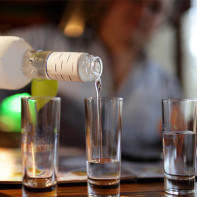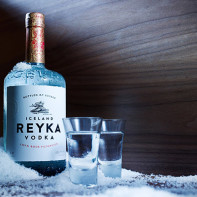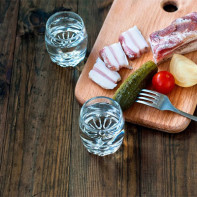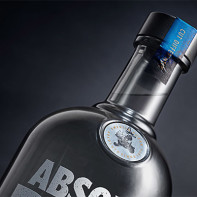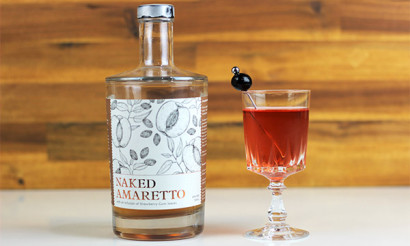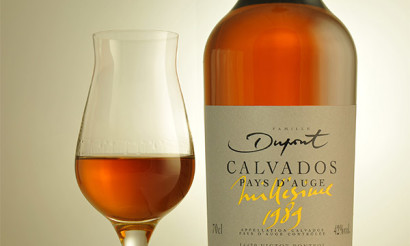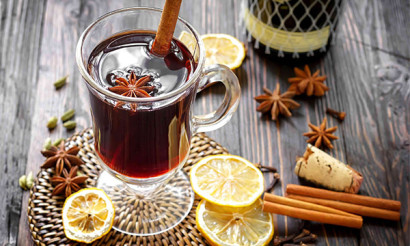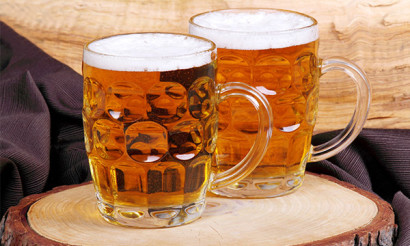How to drink vodka correctly
Holiday feasts do not go without alcoholic beverages. Vodka is one of the most popular types of alcohol, which, if not consumed correctly, can be harmful. In order for the holidays to pass without negative consequences for the body, it is important to know how to drink vodka correctly, what to drink it with and snack.
- What is vodka
- Composition and calories
- How to drink vodka correctly
- What glassware to drink from
- What to wash down with
- What to snack on
- Can I drink vodka?
- For weight loss
- For diabetes
- When there is a fever
- Peptic ulcer
- At pressure
- At gastritis
- At sore throat
- At the poisoning
- For hemorrhoids
- For prostatitis
- With gout
- After a stroke
- After antibiotics
- After tooth extraction
- Can Muslims drink vodka?
- Can I Drink Vodka Every Day?
- What happens if you drink a lot of vodka
- How to drink vodka and not get drunk
- Can I drink vodka after drinking beer and wine?
- How long does vodka weatherize from the body?
- Vodka increases or decreases your blood pressure.
- How to make vodka in your home environment
- Vodka Cocktails: Recipes
- Shot "Uncle Vanya"
- Salty Dog
- Mojito with Vodka
- Benefits and harms of vodka
- Interesting facts about vodka
What is vodka
Vodka is the oldest alcoholic beverage, which is prepared from food alcohol obtained by rectification. Depending on the manufacturer and the type of drink its strength may vary. The standard drink has 40% alcohol and the rest is water. The classic version is vodka without additives, an aqueous solution of alcohol. But there are many variations - on birch buds, with pepper, honey.
Composition and calories
Vodka consists of 38-45% pure food alcohol, the rest is water. The quality of this drink depends on how much alcohol is purified from food impurities, syrups and other additional substances that adversely affect health. Vodka contains from 235 to 260 kcal per 100 ml, depending on the strength and the presence or absence of additives.
How to drink vodka correctly
In Slavic countries, a special attitude to vodka has been formed. It is a traditional drink for all holidays, which is consumed as a means to relieve stress, raise the mood. But often inexperienced in the cultural consumption of this drink people suffer from the improper use of vodka. It is important to know how to drink it correctly.
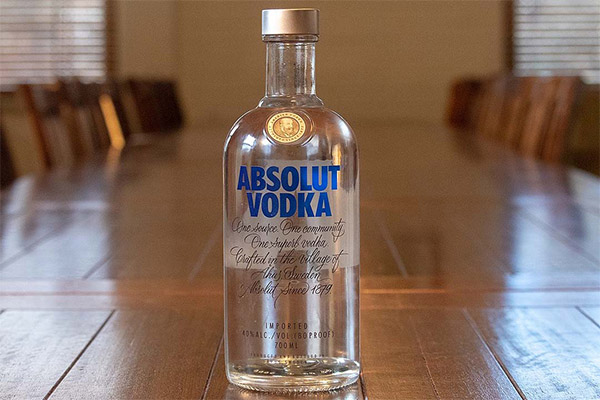
What utensils are used to drink vodka from
Because vodka has a specific, scalding taste, it is usually drunk in small portions. To consume this drink use small shots or glasses of 30, 50 or 60 ml. Vodka from such glass is consumed after exhalation, as a rule, in one sip. Therefore, it is advisable to pour into the glass as much as you can comfortably drink without discomfort in one sip.
In cocktails and mixtures, vodka is consumed in large glasses or glasses, depending on the recipe and the rules for serving each particular type of drink. Drinking straight vodka from a big glass is considered bad taste and not very comfortable.
What to wash down with
Vodka can be washed down, because its taste is not the main advantage of the drink. To interrupt the scalding notes of alcohol, various drinks are used, which can also reduce the potential harm of alcohol. The most successful options for drinks that can be used to wash down vodka are the following types:
- berry morsels (alkalizing, reducing toxicity);
- Fruit and vegetable juices;
- carbonated drinks (not a good option, accelerates absorption of alcohol);
- compotes.
It is good to wash down vodka with juice from citrus fruits. They are rich in antioxidants, which help the body to cope with the toxic load faster. Tomato juice contains acids and salts that help prevent water-salt imbalance. If you drink juices containing fruit pulp, you can prevent a hangover or reduce the severity of unpleasant symptoms. Beverages containing gas or caffeine are not the best option. It is categorically contraindicated to combine vodka with energy drinks of industrial production - this will lead to a quick and strong intoxication, as well as serve too great a load for the nervous system.
What to snack on
Drinking vodka without a snack is extremely dangerous to your health. This leads to rapid and severe intoxication, which increases the burden on the liver and also increases the hangover the next day. If a person does not eat before drinking vodka, it can also be dangerous to the stomach mucosa. Ethyl alcohol irritates the mucosa and can provoke a chemical burn, leading to the development of inflammation and gastritis.
Vodka should be snacked on when consumed after each shot. The purpose of such actions is to reduce the rate of assimilation by the walls of the stomach and the gastrointestinal tract of the alcohol component of the drink. Due to this, the concentration of alcohol in the blood will be lower, which will lead to the preservation of normal well-being, as well as low load on the liver and kidneys. If you choose the right products for the snack, the consumption of vodka will carry only minimal harm to health. There are several varieties of healthy foods that can serve as snacks that reduce the potential harm from alcohol.
First of all, it is salted fish - herring, sprat, capelin, khamsa, herring. Such a product contains minerals and salts, which the body needs, urgently evacuating toxins from itself along with valuable compounds. Salted fish will prevent the violation of the water-salt balance, but will increase the risk of edema with inordinate consumption of vodka.
There is a special group of products that help to improve well-being after drinking alcohol. In order not to suffer the next day from a hangover, on the holiday table should be these foods:
- watermelon;
- zucchini;
- Sauerkraut;
- tomatoes;
- pickled mushrooms;
- cucumbers;
- citrus fruits;
- strawberries, strawberries.
Products containing organic acids are useful for the body. The fact is that acids are catalysts of biochemical reactions of the Krebs cycle, activate the metabolism, help to cope with the decomposition of alcohol and the removal of decay products.
There are a few rules to help prevent feeling unwell after drinking alcohol.
- Do not drink on an empty stomach. You should start the meal with food, not vodka.
- You should not overindulge in food as well as alcohol. Overeating will increase the load on the pancreas and liver, leading to slow processing of alcohol.
- It is important to eliminate excessive fatty foods, as they put as much strain on the liver as alcohol.
- It is worth taking care that the snack contains a sufficient amount of salt, it will help to avoid a heavy hangover.
- After drinking vodka it is better not to drink any other drinks with alcohol, they will make you feel worse.
- You should not in any case drink vodka with beer - this guarantees a severe headache and severe intoxication the next day.
- Do not forget about the caloric content, because vodka also contains a large energy potential, so you need to moderate the consumption of carbohydrates.
- You should not snack on vodka with lard, fatty pork, cheeses, smoked foods.
- To activate the rapid elimination of toxins from the body, you should choose a snack that contains liver-supporting elements and amino acids (fish, vegetables, vegetable oils).
- An excess of protein foods in combination with vodka is harmful to the body. It is not recommended to abuse meat, eggs, fish, legumes.
In order that vodka doesn't harm the stomach, it's also worth choosing products that contain gluten. Of course, no one will use oatmeal as a snack, although a portion of this porridge before the feast will significantly reduce the risk of ill health and harm to the stomach. But you can replace porridge, for example, mashed potatoes.
Can I drink vodka?
Not all cases of vodka are well tolerated by the body. Today there are almost no absolutely healthy people, so if you have chronic diseases, it is important to know when you can drink vodka, and when it is better to abandon it completely or replace it with any other alcoholic beverages.
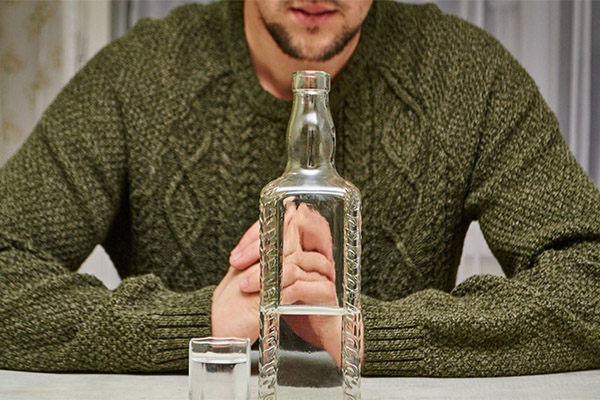
When losing weight
No nutritionist does not indicate vodka in the list of banned products for weight loss. And in vain. Those who are going to fight with excess weight need to know how dangerous this drink is for the figure. The caloric value of vodka is record high - 251 kcal per 100 ml. That is, 200 ml in an evening is a third of the daily norm of calories. The prognosis for those who wish to extend the feast for a long time and have consumed 300 ml in an evening is even worse - it is almost half of the daily requirement of calories. In addition, vodka is dangerous when losing weight for other reasons:
- slows down metabolic processes;
- overloads the liver;
- leads to the formation of cholesterol;
- provokes fluid retention in the body.
All of this together significantly complicates the process of fighting extra pounds, so it is better to give up vodka for the period of weight loss. As a last resort, you can consume this drink, but only in small quantities, snacking on low-calorie food.
When diabetics.
In scientific circles, there are disputes about the use of vodka in diabetes. The opinions of scientists are divided - some have experimentally proved the usefulness of this drink with moderate and irregular consumption. Others fear that the consumption of vodka may significantly reduce life expectancy for diabetes.
Medics recommend not drinking too much - up to 100 ml for men and up to 60 ml for women. The problem is that vodka overloads the liver, so the organ cannot produce the glucose needed to maintain vital processes quickly enough. Therefore, when you drink vodka, your blood glucose levels can drop dramatically. To avoid this, it is recommended to measure sugar before the meal, as well as not to drink on an empty stomach - it is better to eat something caloric and rich in carbohydrates before the first drink.
Important: The glycemic index of vodka is 15 units.
At temperature.
In ancient times, vodka was used as the only effective antipyretic. But today there are many drugs that act many times faster and more effectively, all the more so because these properties of the drink are not proven by science. It is known that ethanol, entering the body, leads to the dilation of blood vessels. As a result, a person feels relief. But the effect passes very quickly, and the temperature can jump even higher.
When the temperature is not high, the consumption of a small amount of vodka can alleviate the feeling. But it is important not to forget the basic rules:
- Drink plenty of water, as alcohol dehydrates the body.
- Snack, so as not to traumatize the body with a high concentration of ethanol (food slows the absorption of alcohol).
- Do not abuse (no more than 100 ml).
Instead of drinking vodka when it is hot, you can rub the body with it to speed up the evaporation of the liquid from the surface of the skin. Such a procedure gives almost instant effect.
If you have a stomach ulcer
With peptic ulcer in the acute stage, any kind of alcohol is prohibited, as it may provoke the development of bleeding. But in the remission stage, it is possible to drink alcohol in small quantities. Vodka may be drunk in an amount of 50-100 ml no more than once a week. You should not drink alcoholic cocktails with vodka, which include sour juices or wine.
If you have low blood pressure
When blood pressure is low, alcohol can lower it even further, which can lead to an attack of hypotension or even to fainting. Vodka is not recommended for hypertension, as it first relaxes the walls of blood vessels, and then leads to their tone and spasms. In hypotensive and hypertensive disease, alcohol is not recommended, but not categorically prohibited. It is necessary to look at the state of health, so it is better to consult with your doctor.
With gastritis
Vodka with gastritis is allowed to drink only after the exacerbation phase is over. In order for the drink not to harm your health, you can not drink it on an empty stomach. Be sure to snack on warm, caloric food. It is desirable not to abuse vodka with hypoacidic gastritis, as this drink inhibits the production of stomach acid and enzymes.
When suffering from angina
Vodka in angina is used as a disinfectant, and there is logic in this. It gets on the enlarged, inflamed tonsils and destroys pathogens. But it is necessary to consider the issue comprehensively. In addition to disinfecting, vodka also irritates the mucous membrane, which increases inflammation. In addition, it overloads an already weakened body, which can lead to a drop in immunity. Therefore, during the treatment of angina it is better to give up vodka, and for therapeutic purposes use specialized medicines prescribed by your doctor.
At poisoning
When the body is intoxicated, it is forbidden to drink vodka, as well as other alcoholic beverages. The problem of such a condition is that all resources are aimed at combating the toxins that provoked the poisoning. Vodka itself is not a toxin, but in the body with the alcohol (the basis of the drink) a series of chemical transformations occur. Immediately the ethanol is absorbed into the GI tract, then circulates in the blood, stimulates the brain, and once in the liver, is broken down. The toxic agent is acetaldehyde. If you drink vodka when poisoned, the body's resources will be diverted to fight the decay products of ethanol, and the underlying problem will be ignored. This will slow down the recovery process.
The second reason why you should not drink vodka if you are poisoned is the risk of dehydration and the disruption of the water-salt balance. When poisoning, the body already requires replenishment of minerals and salts, and vodka will only worsen the situation.
If hemorrhoids
If hemorrhoids are diagnosed, it is better to refuse not only vodka, but also any other types of alcoholic beverages. Even a small amount of ethanol can expand the already dilated blood vessels in the hemorrhoidal nodes. When consumed regularly, vodka leads to a violation of the elasticity and strength of the walls of blood vessels, an increased risk of bleeding. If bleeding begins, it is life-threatening and risks blood loss. In this case, emergency surgical treatment is required.
In prostatitis
Urologists do not recommend the use of vodka in prostatitis. Experts say that the consumption of alcohol in such a diagnosis can lead to the development of such problems:
- Aggravation of the inflammatory process;
- ineffectiveness of treatment;
- early impotence.
In prostatitis, it is indicated to take medications that do not combine with alcohol. Therefore, vodka can only worsen the condition. Since ethanol significantly reduces the response of the immune system, even a mild form of prostatitis can turn into a long, sluggish disease that is not amenable to medical treatment. Therefore, it is not worth risking your health. It is better to refrain from drinking alcohol until treatment is complete.
In case of gout
Gout is a dangerous disease caused by a metabolic disorder, which is associated with increased levels of uric acid. Vodka only increases the concentration of this substance in the body, disrupts the acid-base balance of electrolytes and leads to a worsening of the condition.
At gout consumption of alcoholic beverages is not recommended, but in small quantities you can drink vodka, only observing the rules of safety:
- use a snack;
- do not abuse;
- Drink plenty of alkalizing fluids.
Regular consumption of vodka in gout is dangerous for the body, because it leads to the cancellation of the effect of treatment and the accession of other, more dangerous pathologies. Alcoholism in patients with gout is one of the factors that increase early mortality. With gout you can drink vodka rarely, no more than once a month, no more than 100 ml at a time.
After a stroke
After a stroke, doctors recommend completely eliminating alcohol because it increases the risk of relapse. The brain, which suffered a stroke, will not be able to recover effectively under the influence of toxins that are produced in the body during the processing of alcohol.
After Antibiotics.
It is important to remember that antibiotics and vodka are incompatible products. Alcohol increases their toxic effects and reduces the therapeutic effect. After completing antibiotics it is also better not to fill up on alcohol, because the body needs some time to recover from the toxic load. If you drink large amounts of vodka immediately after a course of antibiotics, you can severely damage the liver.
After tooth extraction
If the tooth extraction passed without complications, you can drink vodka on the 2nd or 3rd day. During the first twenty-four hours after dental treatment, it is strictly forbidden to drink alcoholic beverages. During this period, the body must not be weakened by toxic effects, because there is a risk of dangerous infections and suppuration. If the tooth extraction passed with complications, and antibiotics or other drugs were prescribed, it is necessary to refrain from alcohol until the end of treatment.
Can Muslims drink vodka?
In the Quran there is no direct ban on the consumption of vodka, but there are clear instructions and recommendations regarding alcohol. It is forbidden for Muslims to address Allah when they are drunk, and every true believer must do so at least five times a day. Therefore, Islam prohibits the consumption of vodka and other alcoholic beverages. The prohibition is especially acute during the period of fasting.
Is it permissible to drink vodka every day
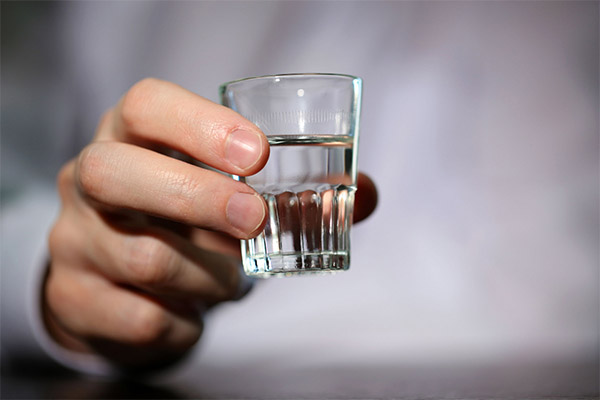
Regular consumption of vodka is a direct path to alcohol dependence. This approach destroys the body and negatively affects all areas of life. If you drink vodka every day, you may experience such negative effects:
- memory impairment;
- impaired cognitive abilities;
- deterioration of physical appearance;
- premature aging;
- problems in the reproductive system;
- impaired kidney and liver function.
Alcohol addiction shortens life by about 20-25 years. The average life expectancy of people with chronic alcoholism is 40-45 years.
What happens if you drink a lot of vodka
Excessive consumption of vodka leads to intoxication. If you drink too much at once, your liver may fail. In some situations, pancreatic inflammation develops with necrosis (death of part of the organ). If you consume more than 1.5 liters of vodka in less than 4-5 hours, a lethal outcome is guaranteed.
How to drink vodka and not to get drunk
There are three ways that will help not get drunk from vodka while drinking. You can choose any depending on the characteristics of the body and the situation.
- Before drinking, eat a good meal - this will slow down the absorption of alcohol in the gastrointestinal tract. Intoxication will be subtle because of the low concentration in the blood.
- Consume a large amount of liquid with vodka, so that it flushes toxins out of the body.
- Consume in moderation, diluting vodka with other drinks and cocktails. Take long breaks between drinks.
There is a widespread belief that in order to avoid the effect of intoxication you should eat 50 grams of butter before the meal. This method really works, but because of the large amount of fat, the liver will be critically overloaded, so it will not be able to effectively cope with the toxic load from alcohol.
There is another way, but it can only be used by absolutely healthy people. To reduce the time of digestion of vodka, you need to cool it to a minimum temperature. For an appetizer you should also use only very cold dishes, wash down the drink with liquids with ice. When cold food or liquid enters the stomach, it is not absorbed until it has warmed to 36-38 degrees. Therefore, this approach will reduce the rate at which alcohol is absorbed by the walls of the stomach, which means that the concentration of ethanol will not be immediately too high.
It is important to keep in mind that any method that slows the absorption of alcohol by the stomach leads to the fact that ethanol will be present in the body longer. Therefore, if you need to sober up more quickly, it is better not to resort to such methods. In any case, the best option would be to minimize the amount of drink consumed or a complete refusal of it.
Is it possible to drink vodka after drinking beer and wine?
In small quantities, vodka after drinking other alcoholic beverages is not dangerous. But it is better not to overload the body by consuming different alcoholic beverages, as this will lead to an increase in the symptoms of a hangover. Scientists have found out that the ill feeling after drinking alcohol is mostly caused by the presence of liquor oils, resins and impurities in alcoholic beverages. Beer and wine have the maximum amount of them. Therefore, in order not to have a headache in the morning and not to be seriously intoxicated, it is better to choose any one kind of drink.
How long does it take for vodka to weatherize out of your system?
The rate at which the body breaks down alcohol is individual and depends on factors such as:
- age;
- weight;
- gender;
- the amount of snacks;
- state of health.
On average, in a healthy man without excess body weight, 100 ml of vodka is completely eliminated from the body in 4 hours. Women need about 1 hour more to process 100 ml of vodka.
Vodka raises or lowers blood pressure
Like all alcoholic beverages, vodka affects the functioning of the cardiovascular system. Immediately upon entering the bloodstream, it relaxes the walls of the blood vessels and dilates them, resulting in a slight decrease in blood pressure. At the stage of elimination from the body the opposite effect is observed. Due to the disruption of the water-salt balance, the blood vessels spasm and narrow, which leads to an increase in blood pressure. That is why it is not recommended to consume vodka in large quantities for hypertension.
How to make vodka at home
Vodka can be made at home in two ways. The first is to use a moonshine machine. But in this case, the drink will contain a lot of impurities, which even with high-quality filtration give side effects. More popular is the creation of vodka from medical alcohol.
Ingredients:
- 750 ml of alcohol;
- 1 liter of purified water;
- 20 ml of pharmacy glucose solution.
You need to mix all the ingredients in a clean glass bottle, shake and leave for a week in the refrigerator to diffuse the water and alcohol. You can additionally filter the drink through a homemade filter made of activated carbon and gauze. It is important to buy for vodka only certified pharmacy ethyl alcohol 96%. It is maximally purified and will not harm your health.
Cocktails with vodka: recipes
Vodka is an excellent base for making alcoholic cocktails. It has a neutral taste, so it combines with almost any additives. There are several popular cocktail recipes.
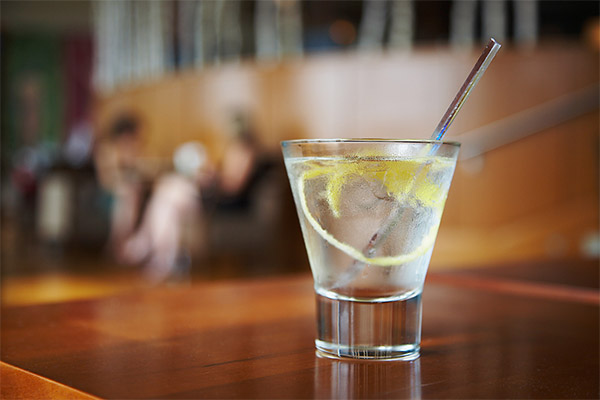
Shot "Uncle Vanya".
Popular in nightclubs and bars, the Shot "Uncle Vanya" is made from the following ingredients:
- 20 ml of vodka;
- 20 ml of lemon juice;
- 20 ml of grenadine.
Take a shot glass (a 60 ml slim tall shot glass), fill it one third full with grenadine, pour lemon juice over it in a thin stream, and top it with vodka, also with a neat movement. The cocktail turns out three layers, looks beautiful and has an unusual taste.
Salty Dog
An equally popular cocktail with such components:
- 50 ml of vodka;
- 150 g of grapefruit juice;
- 1 g of salt.
You need to make a rim on a glass of salt, pour vodka on the bottom, add grapefruit juice. Decarate with a slice of lemon or grapefruit and serve over ice without straws.
Mojito with Vodka
Traditionally, non-vodka is used for mojitos, but there is a variant that is also very popular. You need the following ingredients:
- 60 ml of mineral carbonated water;
- The juice of half a lemon;
- 50 ml of vodka;
- 2 tablespoons of mint syrup;
- A couple of mint leaves;
- ice.
Pour vodka over ice in a deep glass, add mineral water and lemon juice. Pour mint syrup on top, garnish with mint leaves and a slice of lime or lemon. Serve with a straw.
Benefits and harms of vodka
Medicine considers vodka as a harmful drink for health. In its composition was not found any useful substances for the body. But when properly consumed, the drink can also bring benefits - to relieve stress, stress, help to cope with insomnia. In addition, vodka has a pronounced analgesic effect. In ancient times it was used as a means for anesthesia and pain relief during minor operations. Today vodka is not used in medicine as an analgesic because it is not practical. The pharmaceutical industry offers a wide range of potent analgesics that have minimal side effects.
The benefits of this drink are short-lived, and it does not preclude the presence of side effects - intoxication, hangovers, and the risk of addiction. Vodka is dangerous to your health because it can lead to problems such as:
- liver cirrhosis;
- stroke;
- alcoholic (toxic) hepatitis;
- pancreatitis;
- cerebral edema.
When consumed inordinately and regularly, vodka can cause health and mental damage, as well as lead to premature death due to complications of alcoholism.
Interesting facts about vodka
Vodka is one of quite common drinks, but few people know the facts associated with its creation. There are also many other curious facts that allow us to look at this drink from a completely different angle.
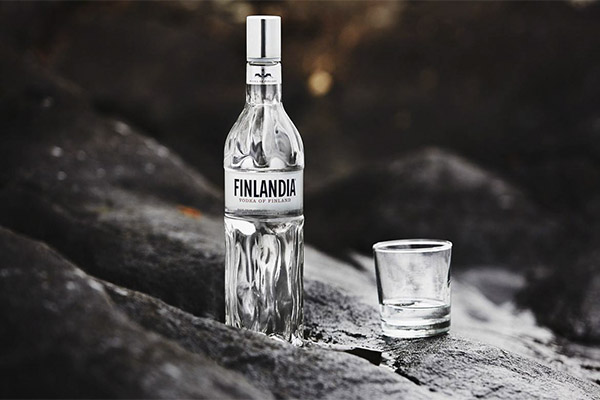
- 1865 is the official year of the creation of vodka in the form to which everyone is accustomed. It was at this time that Mendeleev finished his dissertation on the subject of combining water and alcohol.
- For a long time, vodka was considered moonshine, not an aqueous solution of ethyl alcohol.
- The name "vodka" appeared thanks to Catherine the Great, it was she who in 1761 fixed this term in one of her decrees.
- Vodka is one of the most toxic types of alcoholic beverages, as it contains the highest concentration of alcohol.
- Diva is a Scottish vodka that only the "mighty" can afford. The cost of one bottle can reach up to hundred thousand dollars. Its peculiarity is that it is filled into designer bottles, decorated with precious stones.
- Modern vodka production has several technologies. Wheat or potatoes are most often used as the basis for the drink. The cost of the first variant is usually 20-30% lower, as the process is technologically simpler and less labor-intensive.
- In its pure form this drink is drunk only by representatives of Slavic nationalities. In all other countries vodka is not considered a finished drink but only as a raw material for making cocktails and mixtures.
- Vodka cannot be stored for too long. It is important to check the shelf life before buying, it is limited to a maximum of 12 months.
Vodka is one of the most popular alcoholic beverages. If you consume it correctly, in doses and irregularly, you can never face the negative consequences of ethyl alcohol poisoning. But it is not recommended to drink vodka more than once a month.
It is also strictly forbidden to combine this drink with taking medicines. The most dangerous combination is antibiotics, analgesics and antipyretics with alcohol. For example, if you drink vodka with paracetamol (500 mg), you could end up on the operating table. Also you should not drink this drink if you are planning to drive a vehicle. It is important to understand that the main danger is not a fine from a traffic police officer, but a high risk of an accident, which can lead to disability or even death.
«Important: All information on this site is provided for informational purposes only purposes only. Before you use any recommendations, please consult with a specialized medical professional. Neither the editors nor the authors shall be liable for any possible harm caused by materials."

